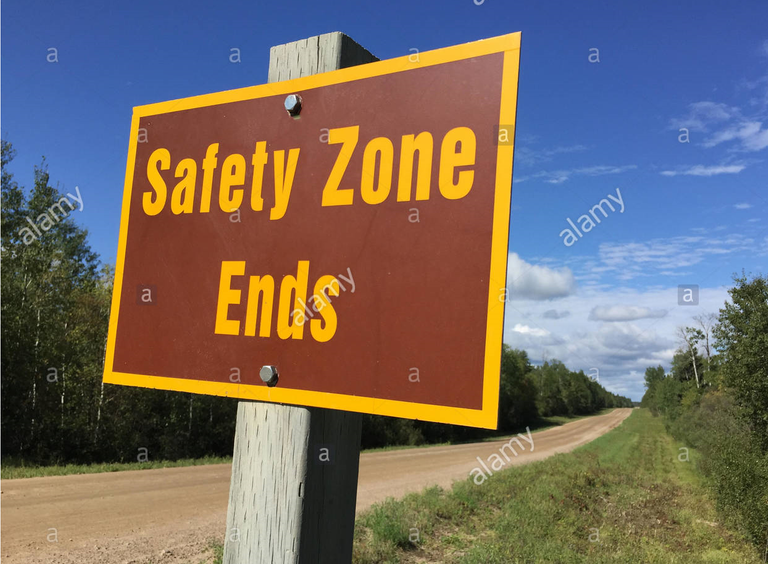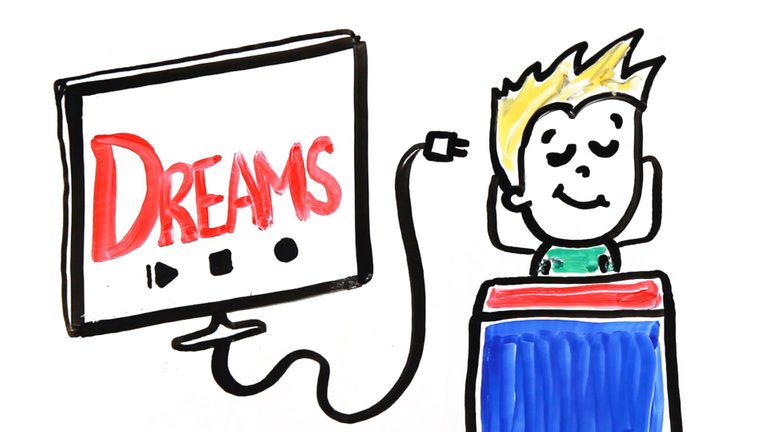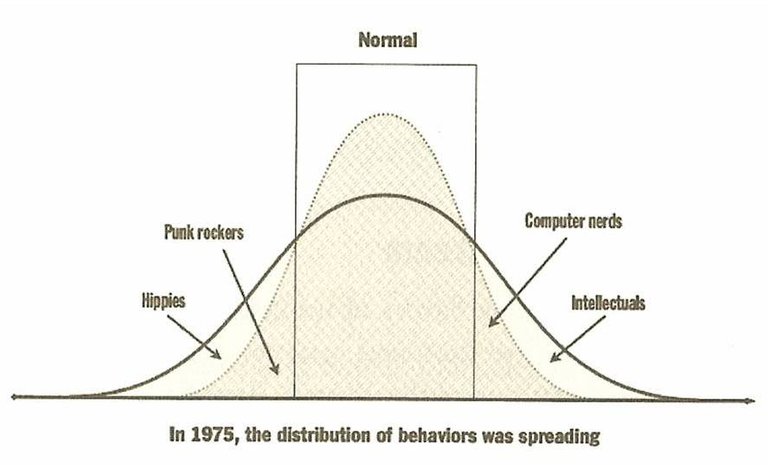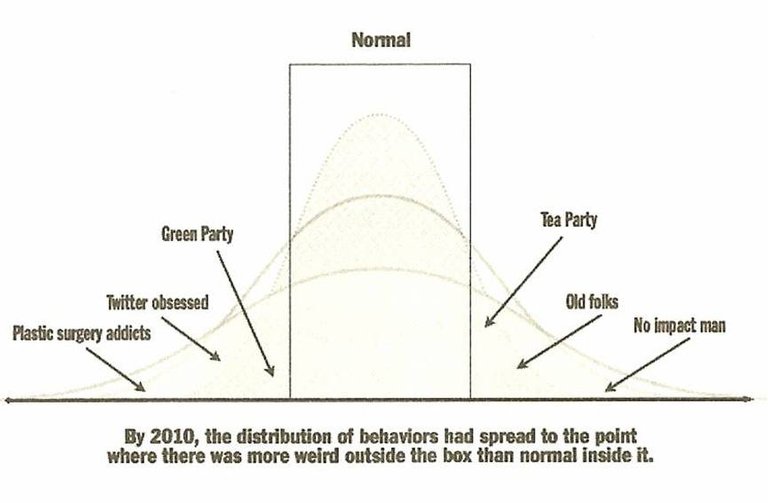Those places that felt safe - the famous college, the cubicle office, the secure job… Are they still that safe? Yes they still might be comfortable for some of us but I think the majority of us today already feels that they aren't that “safe” anymore.

9 to 5 Job
The 9 to 5 stable job is dying, slowly but inevitably... making us more and more anxious. Everything our parents or our teachers at school were teaching us, making less and less sense as time passes. What a new era we facing? Where do we start trying to understand the reasons behind that phenomenon and what can we do about it?
Let’s start with a little history… How did we get to that comfortable day job?
Capitalism VS Industrialization
Everything started pretty simple…
The butcher and the baker make a trade. The butcher gets a loaf of bread in exchange for piece of meat, and both benefit. Soon the baker had made enough trades that he could buy a better oven. Now the baking of bread was even more efficient than before, and the benefit to the baker's customers increased - more quality for less expense.
And so capitalism transformed the world. Everyone who trades benefits, and the retained capital buys machines and processes that improve productivity, so the benefits continue.
Then industrialist not only wants to make ever-more-productive trades, driving quality up and costs down, but wants to change two things that have never been changed before
Changing the culture
The industrialist is big enough and powerful enough. He does advertising and lobbying. Thanks to industrialists and their profits, our definition of success was changed. The nature of education was changed. The very way we spent our time and our resources was transformed by mass advertising, mass schooling and mass production.
Industrialist destroyed our simple culture, replacing it with something “shinier”...
It opened the doors to 9 to 5 repetitive jobs and the hierarchy of middle management.
Industrialist demanded a seat at every table - a voice in how we ran our government, our schools, our science. But it was all ok, because the productivity he created made us relatively wealthy , fed our children , and delivered medical care as well. Industrialism brought hospitals and CD players and McDonalds. What could be bad about that?
The change in culture went further than most expected. Another change followed…
Change of our dreams

We have embraced industrial propaganda with such enthusiasm that we have changed the very nature of our dreams. The industrialist needs you to dream about security and the benefits of compliance. He works to sell you on a cycle of consumption (which requires more compliance). And the industrialist benefits from our dream of moving up the corporate ladder, his ladder.
Capitalism is driven by failure, the failure of new ideas to catch or the failure of being beaten by competitor.
Industrialization is about eliminating the risk of failure, about maintaining the status quo, make you dream of security and cementing power. “Too big to fail” is the goal of every industrialist , but ‘too big to fail” also means that capitalism is no longer functioning.
It’s Not Personal
After nearly a century of effort, the industrial system has created the worker-proof factory. It’s ok if person who assemble iPhone on assembly line doesn’t care. The system cares.The system measures every movement, every bit of output, so all are in order. It’s ok if person at bank doesn’t care - the real work is done by an ATM or a spreadsheet. We’ve systematized and mechanized every step of every process by eliminating “personal” from frontline labor.
Simple handmade elements of life, like bread, were industrialized. Industrial bread was cheaper, faster and easy to turn a profit on. As a result, flour turned white and the personality of a baker was isolated from that of his bread.
Industrialists always want to create more efficiencies, more scalability and more speed. But both the economics and the ethics of the last bit of industrialization don’t really scale. We can’t make it much faster or much cheaper, and dehumanizing everything we touch has a cost - the old economy is dying
New economy
The system demanded a high price for its promises of safety. It demanded that we give up our voices and accept different, lesser dreams. We traded debt for an SUV, sure, but we also traded independent thought and the ability to stand up and say, “Look what I did.”
The new, connected economy demands different sacrifices and offers a different sort of safety zone. In this new safety zone, we are surrounded NOT by the mass market but by the “weird”, by the few who care deeply about what we’re capable of.
The “weird”
The weird are people outsides of the normal zone. The normal distribution ruled the lives of the last four generations. It was the curve that defined the mass market, that showed where efficiency of marketing and manufacturing lay.

The internet and the connection economy turn the economics of mass on its head
The “too big to fail” industrialist serving the average people in the middle of the curve by feeding them with commercials, changing they wants and needs as he wish but in this internet age it becomes less and less efficient. The middle “normal” curve gradually disappears, leaving the “to big to fail” alone and insecure.

Yes, the mass market in the middle of the curve are fading!!! It’s not safe there anymore. The old industrial era coming to its end.
It’s now cheaper and more efficient to make edgy, amazing products for the weird edge cases (who are listening and talking and who care) than it is to push yet another average product onto the already overloaded people in the middle of the curve. In internet era we can better connect and serve each other.
Mass media no longer the only source for our reality formation. We stepping out of a “middle” standardized by industrialists.
Welcome to connections economy
The new economy demands us doing NOT the work of making the same widget faster and cheaper but the work of connecting and entertaining and amazing with our most vivid dreams. Building our own audience. Stand out with our own voice. Making our own ART.
But, that new safety zone not so comfortable... yet. It demands our personality back and it brings back the risk of failure.
Of course it’s difficult to overcome a lifetime of education (and brainwashing). New habits will have to be created, and new expectations to go with them. But the good news is that for the first time in recorded history we have all the tools available to stand out, to find our own “weird” audience and serve them. It matters not so much where you’re born or what your DNA says about you the connection economy is waiting for anyone to step forward.
Inspired by “The Icarus Deception” by Seth Godin.
